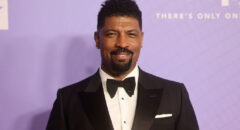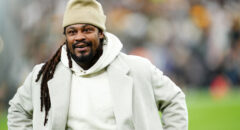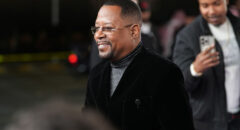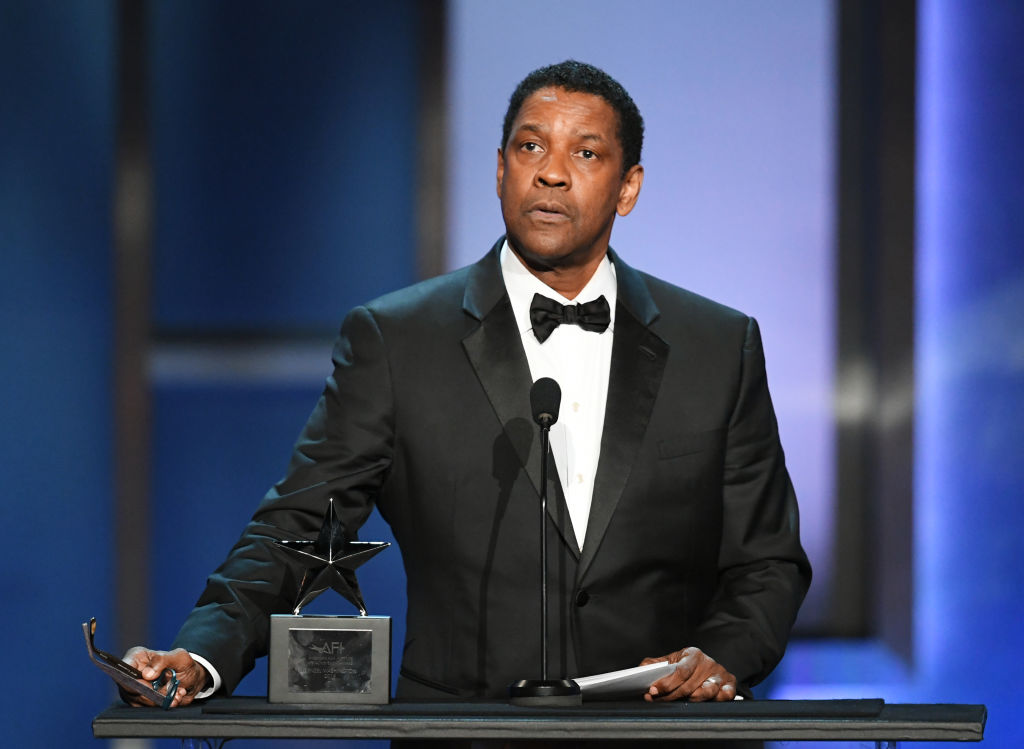
Denzel Washington is a man who is a force on screen. His unforgettable, award-winning portrayals of characters leave us feeling a host of different emotions, including feeling proud, even with the smooth-talking character of a crooked cop, Alonzo, in the movie Training Day. But that same feeling of pride doesn't just rest on screen, but off as well. This past week proved it with Denzel coming to the rescue of a man with real-life police officers.
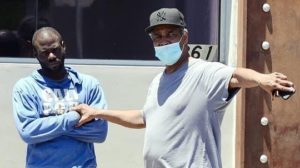
Apparently Washington saw a commotion on the streets of West Hollywood with cops and an unarmed distressed homeless man. He gets out of his car and serves as a barrier between what could have likely ended in a deadly confrontation. He got the man something to drink and calmed him. And the whole incident was caught on video.
Posted to Twitter on Thursday by former NBA player Rex Chapman, the video shows Washington wearing a face mask as he speaks to a black man and two police officers. The footage then cuts to show Washington holding a pack of face masks as officers put the man's hands behind his back.
In another social media post, a police officer provides more details on the situation. The officer that was on-site confirmed that Washington saw the man while driving, pulled over because he was worried about his safety and then the cops came. Keeping calm, Washington was sure to diffuse any situation and the police were able to arrest the man without any incident.
Officers even reported that Washington put extra masks in the man's pockets and that the actor is a "very good Samaritan."
Denzel once again was using his celebrity to do good. It's something any of us could do when we see someone in need of help: step in and step up to help.
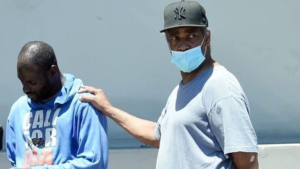
Many are comparing this incident with Denzel with what just recently happened to Minneapolis resident George Floyd. A video on Facebook Monday showed Minneapolis police officer Derek Chauvin kneeling on Floyd's neck while Floyd said repeatedly that he couldn't breathe. Floyd, 46, was later pronounced dead at a local hospital, according to police.
This is also yet another unarmed Black man who had his life taken by police--the very same people that were have been told would protect and serve us.
As of Friday, May 29, 2020, Chauvin has been arrested for manslaughter for the killing of Floyd. We will be following the case closely.
While there isn't a proven way you can guarantee your safety when you see someone being harassed by police, there are certain rights that we should have.
The ACLU recommends we can do the following when we witness police harassment:
1. Stand at a safe distance and, if possible, use your phone to record video of what is happening. As long as you do not interfere with what the officers are doing and do not stand close enough to obstruct their movements, you have the right to observe and record events that are plainly visible in public spaces.
2. Do not try to hide the fact that you are recording. Police officers do not have a reasonable expectation of privacy when performing their jobs, but the people they are interacting with may have privacy rights that would require you to notify them of the recording. In many states (see here) you must affirmatively make people aware that you are recording them.
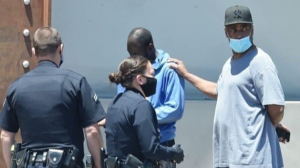
3. Police officers may not confiscate or demand to view your photographs or video without a warrant, and they may not delete your photographs or video under any circumstances. If an officer orders you to stop recording or orders you to hand over your phone, you should politely but firmly tell the officer that you do not consent to doing so, and remind the officer that taking photographs or video is your right under the First Amendment. Be aware that some officers may arrest you for refusing to comply even though their orders are illegal. The arrest would be unlawful, but you will need to weigh the personal risks of arrest (including the risk that officer may search you upon arrest) against the value of continuing to record.
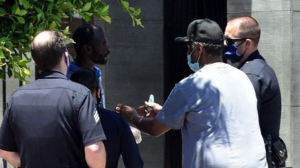
4. Whether or not you are able to record everything, make sure to write down everything you remember, including officers’ badge and patrol car numbers, which agency the officers were from, how many officers were present and what their names were, any use of weapons (including less-lethal weapons such as Tasers or batons), and any injuries suffered by the person stopped. If you are able to speak to the person stopped by police after the police leave, they may find your contact information helpful in case they decide to file a complaint or pursue a lawsuit against the officers.




